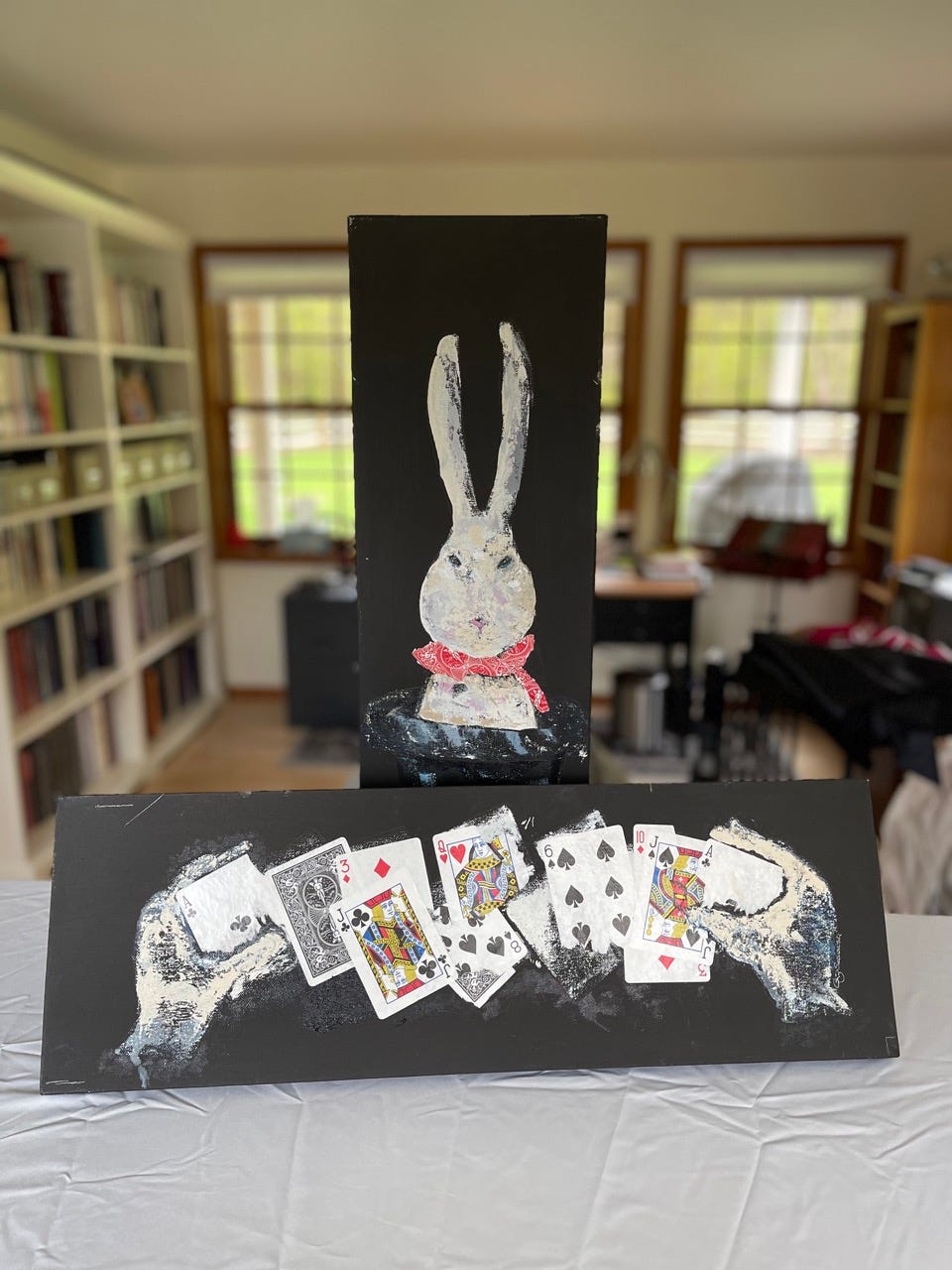
Some years ago, when I was working for a Boston marketing agency, my coworker Rosalie came to my office one day with two packages. When she wasn’t managing printing projects, Rosalie created art, and Janice and I had recently gone to see an exhibition of her paintings. At that exhibition, all of Rosalie’s paintings were on black canvas, and I had expressed fascination with that.
So Rosalie created two magical paintings and gave them to me as gifts. I treasure them and they decorate my magic studio (my amateur photography skills don’t do them justice here).
But the greater gift was how Rosalie answered when I asked why she, who was an expert on color and inks, painted on black. I’d never seen that before.
“You have to look at light differently as an artist,” Rosalie said, adding that she was greatly influenced by black and white photography. “You have to bring dimension into the subject. With white canvas I only get shadow. Painting on black is more like a negative, but with color.”
Rosalie said that compared to white canvas, “With black you always get something new. Black is total freedom. It shows you enough detail to tell you what it is, but not so much to bore you.
“It’s total happiness.”
When Rosalie shared this with me, I thought of the poet David Whyte and his poem, “Sweet Darkness,” which is a favorite of mine. It’s the only poem I know by heart—well, other than “Ode to a Baby” by Ogden Nash, which goes: A little talcum/Is always walcum.
As Whyte tells it, he was standing on his stairway landing one night, gazing out a window at the darkness, and it came to him that the darkness is a friend. It goes on and on with no limiting horizon coming into view. This limitlessness Whyte speaks of feels similar to Rosalie’s praise for the black canvas as total freedom. Borrowing from my magician’s philosophy of the flip-it mentality, which I’ve written about previously (“Where does hope live?” March 8, 2023), rather than hide things and feel scary, darkness can reveal the world to us and envelop us in a kind of warmth unobtainable from a thousand suns.
To us it reveals the stars, even though they are all out in the daytime, too.
It goes on and on and on, helping us ponder infinity and scale the walls imprisoning our imaginations in a way a blue sky with its cotton clouds simply can’t.
It invites us to dream. If you’ve ever wondered what pure magic looks like, turn down all light and gaze into the night.
I invite you to spend a meditative moment with “Sweet Darkness” by David Whyte:
When your eyes are tired
the world is tired also.
When your vision has gone,
no part of the world can find you.
Time to go into the dark
where the night has eyes
to recognize its own.
There you can be sure
you are not beyond love.
The dark will be your home
tonight.
The night will give you a horizon
further than you can see.
You must learn one thing.
The world was made to be free in.
Give up all the other worlds
except the one to which you belong.
Sometimes it takes darkness and the sweet
confinement of your aloneness
to learn
anything or anyone
that does not bring you alive
is too small for you.





Wonderful! This is my favorite David Whyte poem.